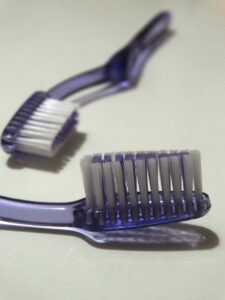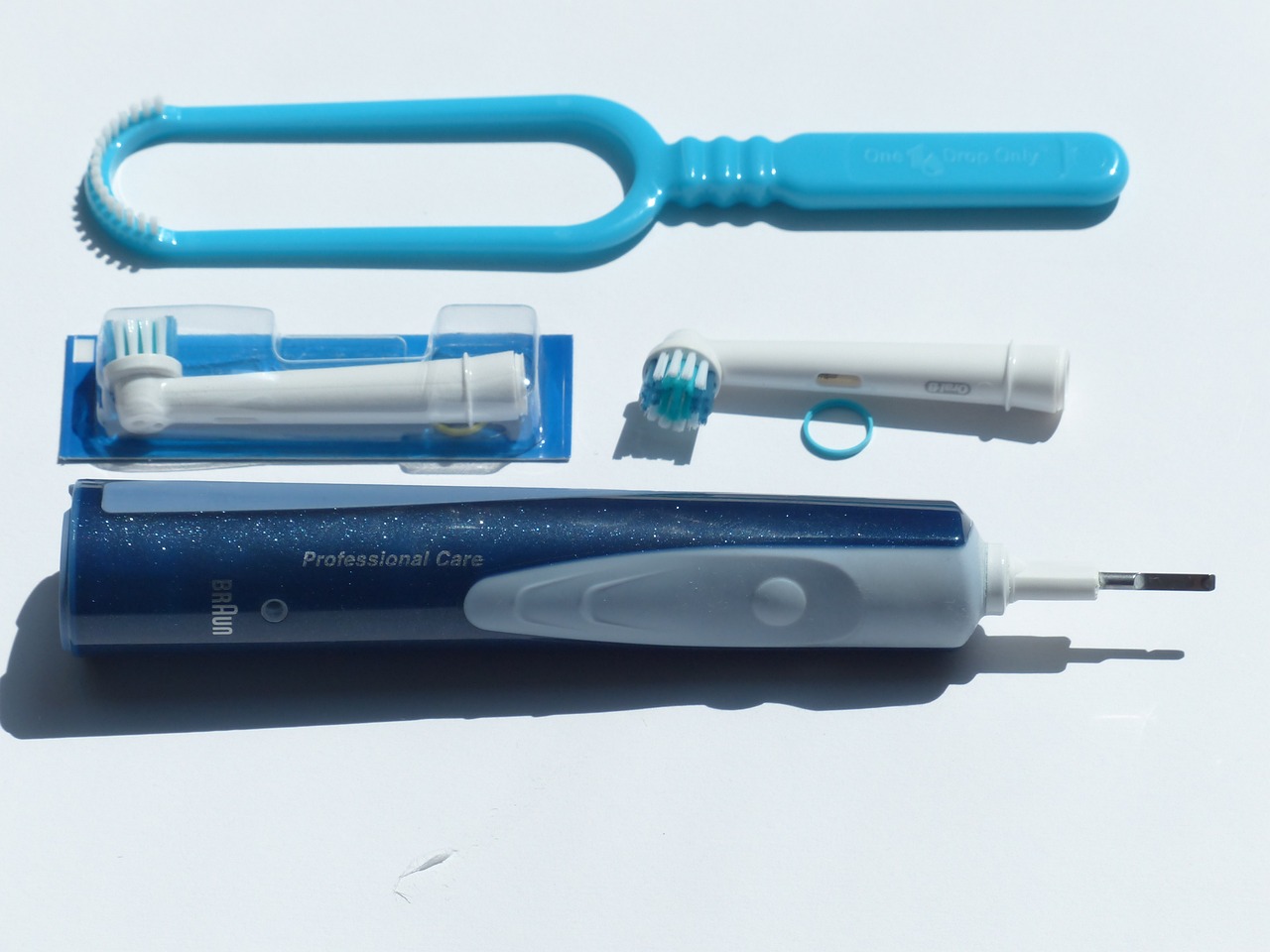Uncovering the Truth: Are Manual or Electric Toothbrushes Better for Your Oral Health?
When it comes to maintaining a healthy and bright smile, the toothbrush is one of the most fundamental tools in our oral care arsenal. With the wide array of toothbrushes available in the market today, it can be overwhelming to choose the right one.
The most perplexing decision is always in deciding between the two main options: the traditional manual toothbrush and the modern electric toothbrush. Each type has its own set of benefits – but which one truly reigns supreme in the realm of oral health?
A Preview of technological advances incorporated in both manual and electric toothbrushes
Whether you are a loyal fan of the traditional manual toothbrush or intrigued by the innovative technology of electric toothbrushes, let’s dive into the world of oral care and find the toothbrush that will keep your smile shining bright!
Manual Toothbrush Design.
The manual toothbrush has undergone significant transformations over the years. The plastic handles are nowadays available in various designs which provide improved grip for better brushing control. Additionally, advancements in manufacturing technology have led to toothbrushes featuring angled bristles, multi-level bristle designs, and flexible necks to reach challenging areas.
Advantages of Manual Toothbrushes
1. Affordability: Manual toothbrushes are generally more budget-friendly, making them accessible to many individuals.
2. Control and Technique: Using a manual toothbrush allows for better control over brushing pressure and technique, making it suitable for people with specific dental needs or sensitivities.
3. Portability: Manual toothbrushes are easy to carry while traveling, as they do not require batteries or charging.
4. Ease of Use: Manual toothbrushes are familiar and straightforward, making them ideal for individuals of all ages, including children.
Manual Toothbrushes Limitations
1. Aggressive Brushing: Tendency to brush your teeth vigorously with a manual toothbrush is very high. This can lead to gum irritation, enamel wear, and gum recession. Using excessive force may also contribute to tooth sensitivity over time.
2. Inadequate Cleaning: Manual toothbrushes require proper brushing technique and diligence to reach all areas of the mouth, including hard-to-reach areas between teeth and along the gumline. Inadequate cleaning may lead to plaque buildup and potential oral health issues.
3. Bristle Wear and Contamination: Over time, the bristles of a manual toothbrush can become frayed and less effective in cleaning. Additionally, manual toothbrushes may harbor bacteria if not properly cleaned and stored between uses.
-
Sale!

CURING HYPERTENSION: Simple Healing Secrets Revealed
Original price was: $20.00.$7.00Current price is: $7.00. Add to basket -
Sale!

Diabetes Reversal: Stop Medication and Live Worry-Free For Life
Original price was: $20.00.$5.00Current price is: $5.00. Add to basket -
Sale!

The Rise of the Silent
Original price was: $7.00.$3.00Current price is: $3.00. Add to basket -
Sale!

Win Back Your Financial Freedom: A Guide to Build Your Wealth
Original price was: $7.00.$3.00Current price is: $3.00. Add to basket
How Electric Toothbrush Technology Has Advanced Over the Years
Over the decades, significant technological advancements have transformed electric toothbrushes into highly sophisticated oral care devices. Rechargeable batteries replaced cords, making electric toothbrushes more convenient and portable. Modern electric toothbrushes now come with various brush head options, including oscillating- rotating, sonic, and ultrasonic, catering to different dental needs.
Smart toothbrushes have also emerged, incorporating Bluetooth connectivity and smartphone apps to provide real-time feedback on brushing habits. Some models feature pressure sensors and timers to ensure optimal brushing duration and gentle pressure on teeth and gums. These advancements have revolutionized home oral care, offering users a more effective and enjoyable brushing experience.
Advantages and Limitations of Electric Toothbrushes
Electric toothbrushes offer several advantages over manual toothbrushes.
1. Efficiency and Consistency: Electric toothbrushes with oscillating-rotating or sonic technology provide more consistent and even cleaning, leading to improved oral hygiene.
2. Built-in Features: Many electric toothbrushes include timers and pressure sensors, encouraging users to brush for the recommended two minutes and apply optimal pressure. 3. Ease of Use: The automated brushing motion of electric toothbrushes reduces the effort required by users, making them suitable for those with limited dexterity or physical challenges.
4. Motivation: The added features and technology of electric toothbrushes can motivate individuals to maintain a more diligent oral care routine.

Limitations:
– They are generally more expensive than manual toothbrushes.
– Some people may find the vibrations uncomfortable.
-Additionally, electric toothbrushes require charging or battery replacement, which can be less convenient for travel or in areas with limited access to electricity.
An In-depth Comparison between manual vs electric toothbrush.
1. Effectiveness in Plaque Removal
Studies have shown that both manual and electric toothbrushes are effective in removing plaque when used correctly. Manual toothbrushes rely on the user’s brushing technique, and thorough cleaning may require more time and effort. On the other hand, electric toothbrushes with oscillating-rotating or sonic technology can provide more consistent and even plaque removal, making them advantageous for individuals with limited dexterity or difficulty maintaining proper brushing techniques.
2. Efficiency in Cleaning
Electric toothbrushes are generally more efficient in cleaning due to their rotating or vibrating bristles, which can cover more surface area in less time compared to manual toothbrushes. This efficiency can lead to improved oral hygiene and potentially better overall dental health.
3. Ease of Use and Handling
Manual toothbrushes are simple to use and require no additional setup. They are travel-friendly and do not depend on batteries or charging. Electric toothbrushes may require some getting used to, especially for first-time users, but their built-in features, such as timers and pressure sensors, can help users develop better brushing habits over time.
4. Cost Considerations
Manual toothbrushes are more cost-effective upfront, with minimal recurring expenses. Electric toothbrushes, while more expensive to purchase initially, may offer cost savings in the long run as replacement brush heads are generally less expensive than buying new manual toothbrushes regularly.
5. Environmental Impact
From an environmental perspective, manual toothbrushes are typically considered more eco-friendly as they produce less waste. However, some electric toothbrushes now come with replaceable brush heads, reducing their environmental impact compared to single-use electric toothbrushes.
6. Suitability for Different Age Groups and Oral Health Conditions
Manual toothbrushes are suitable for people of all ages and oral health conditions. They allow for more control over brushing pressure and technique, making them ideal for children and individuals with sensitive teeth or specific dental concerns. Electric toothbrushes can benefit those with limited mobility, braces, or gum disease, as their technology can enhance brushing effectiveness in these cases.
Factors to Consider When Deciding Between Manual and Electric Toothbrushes
1. Personal Preference: Consider which toothbrush type aligns with your brushing style and comfort level. Some individuals may prefer the manual toothbrush’s control, while others may appreciate the automated brushing motion of an electric toothbrush.
2. Oral Health Needs: Assess your oral health needs, such as sensitivity, gum health, and dental conditions like braces. Certain toothbrush types may be more suitable for specific oral health concerns.
3. Ease of Use: Evaluate both toothbrush types’ ease of use and handling. Manual toothbrushes are typically straightforward, while electric toothbrushes may have added features that cater to individual needs.
4. Cost and Budget: Consider each toothbrush type’s initial cost and ongoing expenses, including replacement brush heads for electric toothbrushes.
5. Portability: If you frequently travel or need a toothbrush for on-the-go use, consider the portability and convenience of both options.
Regardless of the toothbrush type chosen, maintaining good oral hygiene remains paramount. Dental experts offer the following tips to enhance oral health:
1. Proper Brushing Technique: Using a manual or electric toothbrush, use a gentle circular motion to thoroughly clean teeth and gums.
2. Brushing Frequency: Brush twice daily, ideally after meals, to remove plaque and food particles.
3. Flossing: Incorporate daily flossing to clean between teeth where toothbrushes cannot reach.
4. Regular Dental Checkups: Schedule routine dental visits for professional cleanings, oral examinations, and personalized oral health guidance.
5. Healthy Diet: Consume a balanced diet, limiting sugary and acidic foods that can contribute to tooth decay.
6. Avoid Smoking and Tobacco: Smoking and tobacco use can negatively impact oral health and increase the risk of gum disease.
By following these expert tips, individuals can maintain good oral hygiene and support
their overall well-being.
Next time you stand in the toothbrush aisle, contemplating your choice, remember that the best toothbrush is the one that you will use consistently and correctly. By arming yourself with knowledge and dedication, you’ll be well on your way to achieving a winning smile that shines brightly for years to come.
Conclusion:
Regardless of the toothbrush type, one undeniable fact remains: regular and proper brushing, along with consistent oral care habits, is crucial for maintaining optimal oral health. Brushing for the recommended two minutes, twice daily, along with daily flossing and routine dental checkups, form the foundation of a healthy smile.
Incorporating these habits into your daily routine ensures that you are proactively caring for your oral well-being.
Disclaimer: We encourage you to consult your dentist. Dental professionals can assess oral health, consider specific dental conditions, and offer personalized toothbrush recommendations. Whether you opt for a manual or electric toothbrush, your dentist’s advice will guide you toward making the most suitable choice for your oral health requirements.
Dr. Sibuti Riro is a consultant Periodontist at Supreme Smiles Avenue Dental Center located in Kilimani along Tigoni Road directly opposite the entrance of Naivas Kilimani.




